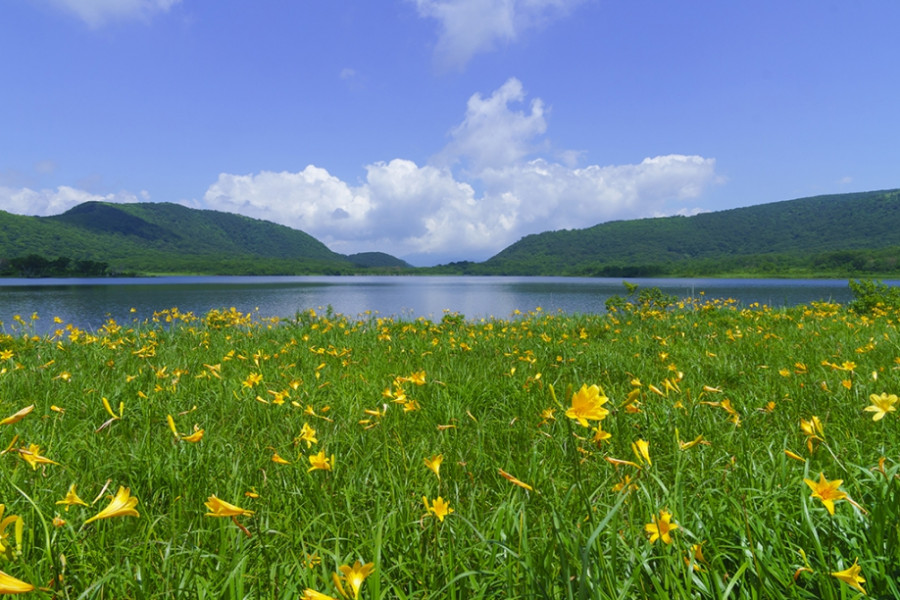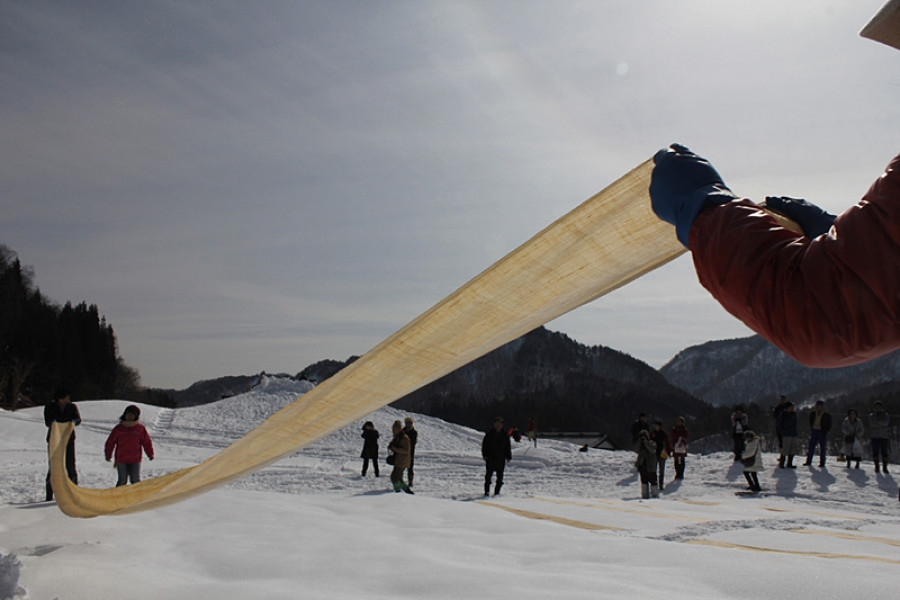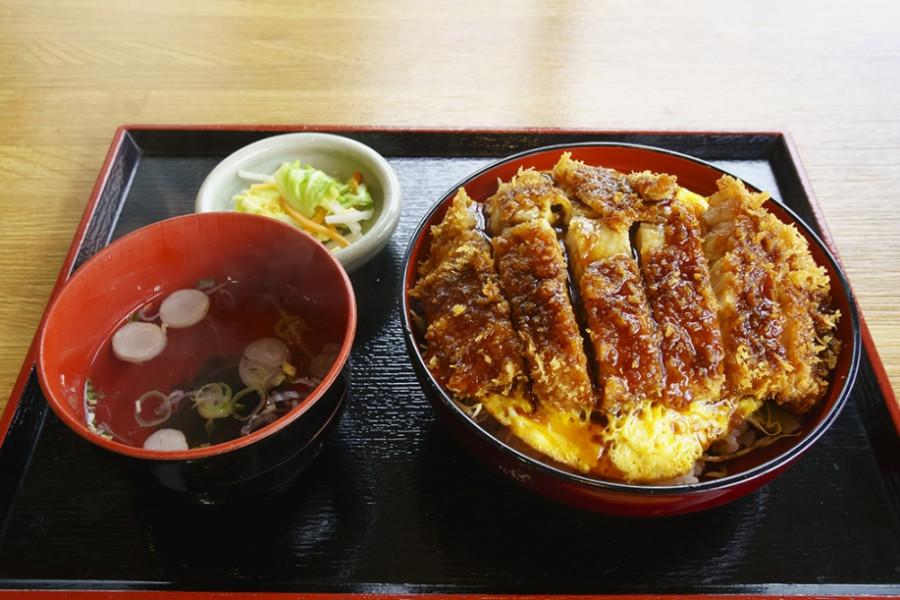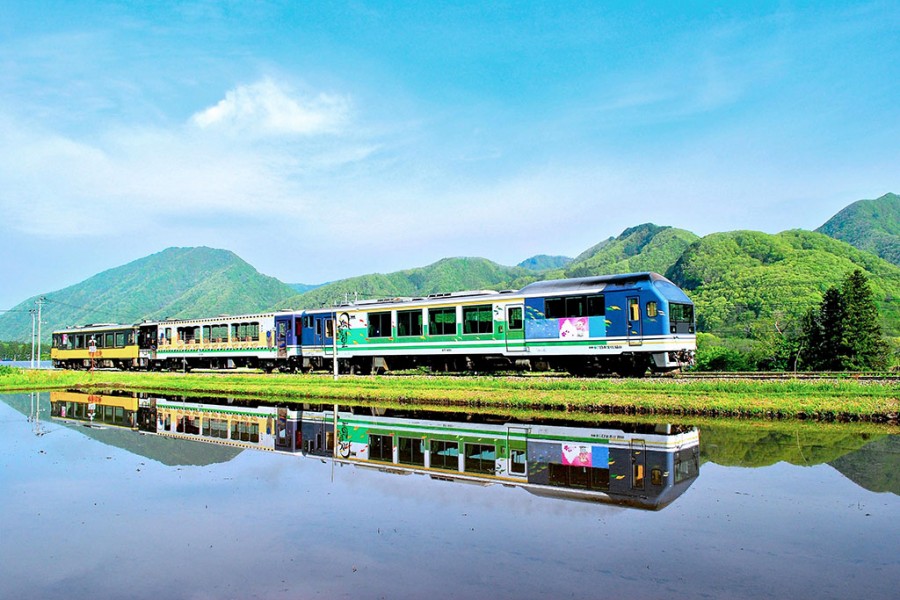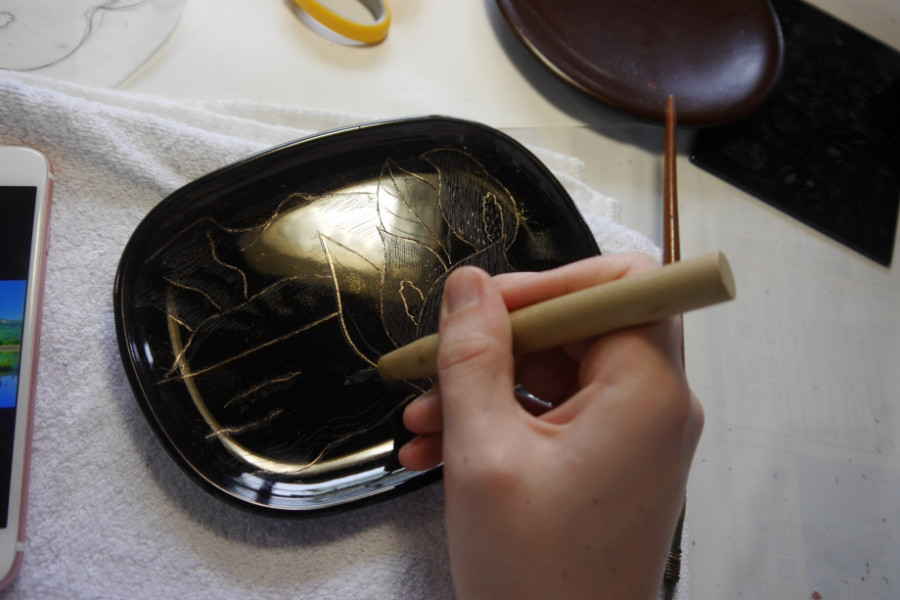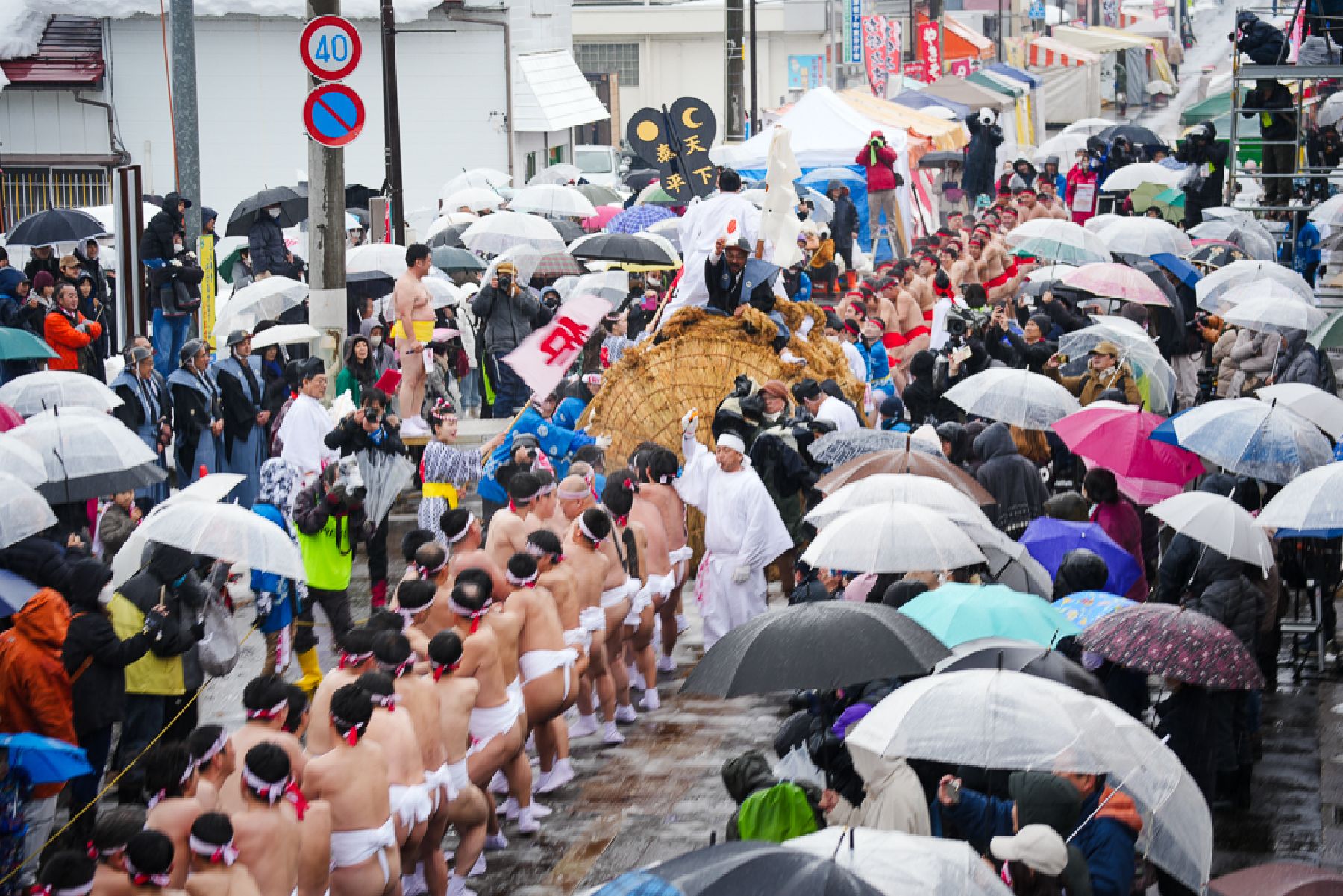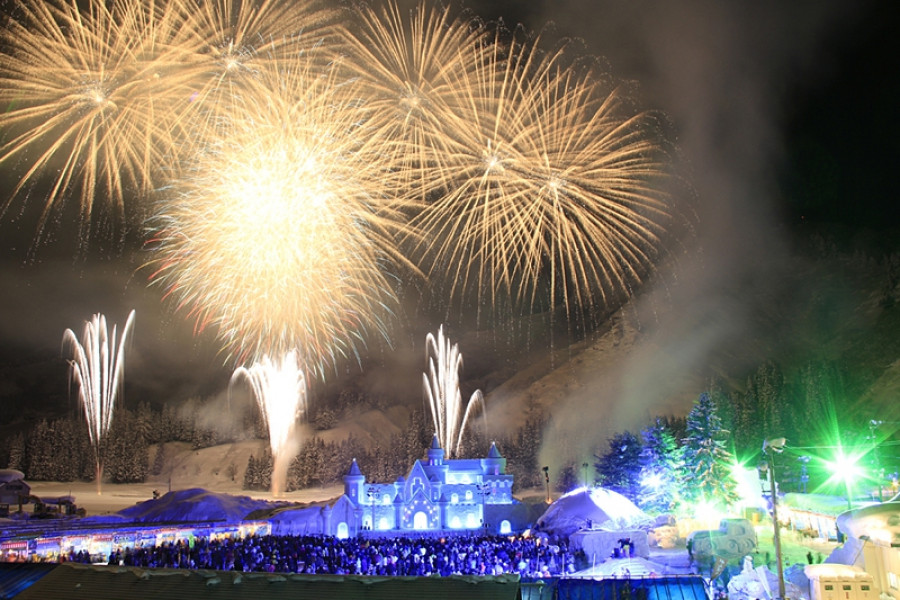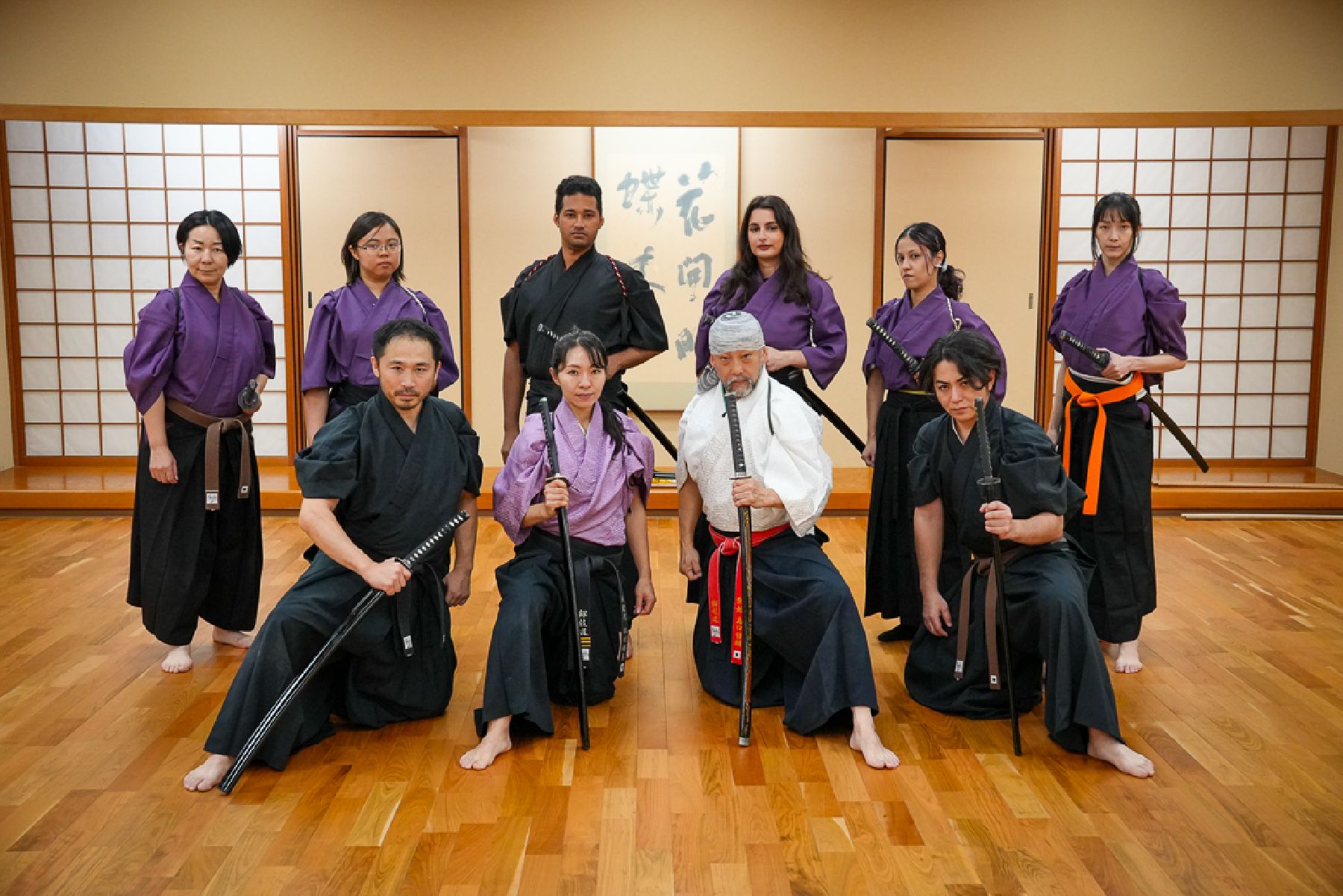Events & Festivals
Otawara Hiki (Bale Pulling Festival)
Held in the town of Aizu-Bange to the northwest of Aizu-Wakamatsu City, Otawara Hiki is a fierce display of community spirit and competitive energy that traces its roots back to the Edo period. It's the main attraction of the so-called 'Strange Festival', which takes place on 14 January every year.There is a children's event, featuring local students, before the main bout is fought over a large bale between teams representing the west (the white team) and the east (the red team). Despite the cold, the male participants take part largely in loincloths, while female participants wear a traditional festival light coat. It's said that if the east team wins, business will prosper in the coming year, while if the west team wins, it means there will be a bountiful harvest.The festival was first founded over 400 years ago in the Warring States Period, but was abolished by the Imperial government after the Aizu Domain's loss under the shogun in the Boshin War (civil war) of 1868. The tradition was restarted roughly a century later in 1956, and has continued to this day.Before the tug-of-war, there are taiko drum performances, and afterwards visitors can enjoy a dramatic display of the pounding of mochi by local experts, cheered on by the crowd, and receive a miniature bale said to bring good luck.Members of the public can also join the tug-of-war if they apply in advance. Please contact us for more details.A similar Strange Festival takes place in nearby Aizu-Misato on 11 January, also featuring a tug-of-war over a large bale, albeit wearing more layers than their counterparts in Aizu-Bange.Otawara Hiki– Event Schedule (2026)12:50 Tawara-daiko Performance Taiko drum performance by the Aizubange Town taiko group13:20 East vs. West Kotawara Hiki (Small Bale Pulling) Children compete by pulling a small straw bale (approx. 1.5 m high × 2.2 m long, weighing 1 ton)14:00 Otawara Hiki (Giant Bale Pulling) Teams pull a giant straw bale (approx. 2.5 m high × 4 m long, weighing 5 tons)14:45 Mochi Rice Cake Serving15:00 Fukumame Bale Tossing A total of 365 lucky small bales are thrown to the crowdFood stalls open from 11:00
